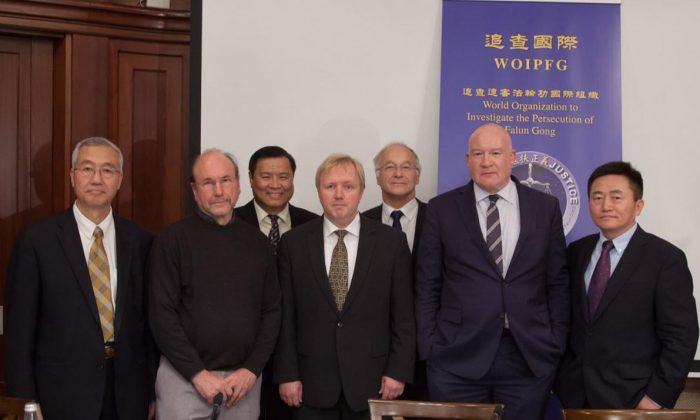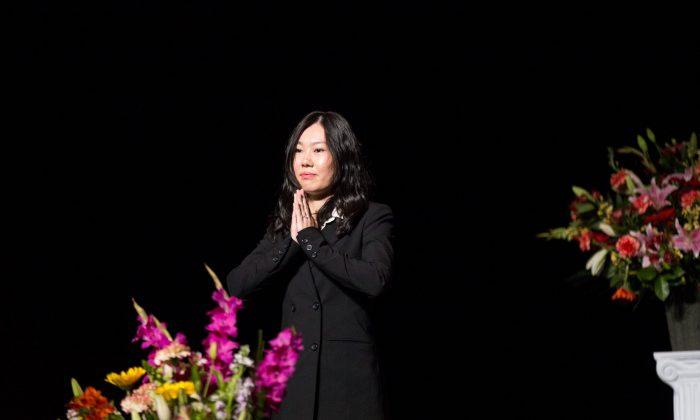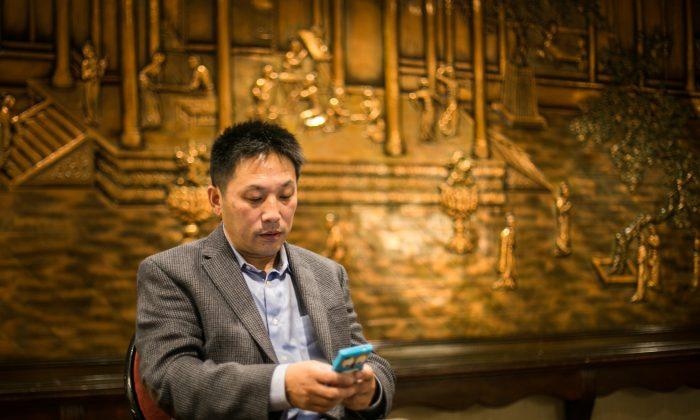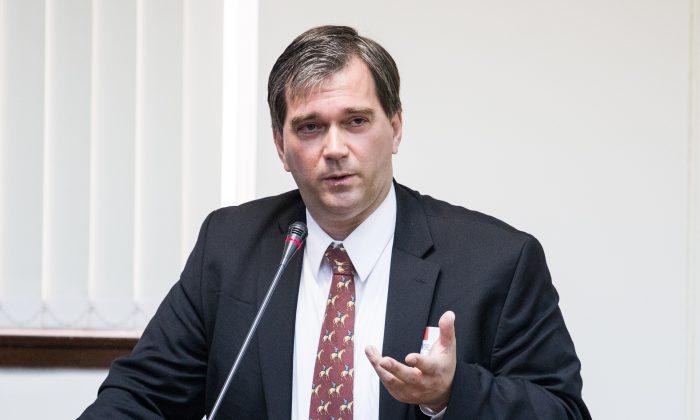CANBERRA, Australia—The Australian Institute for China in the World was a topic of some interest to several speakers in the morning session of the China Update at the Australian National University on July 14.
Vice-Chancellor Chubb’s introduction included some remarks about the Institute, presaging Richard Rigby’s discussion of the topic. Establishment of the institute was announced by former Prime Minister Kevin Rudd in his George Morrison lecture in April. It came with a promise of $35 million in seed funding, including $18 million for a new building—the expertise of a chic Chinese architect having been retained for the design of the latter.
“We’re grateful for it, we’re always grateful for major funding commitments. It will enable us to advance China studies at ANU. We hope also to draw on colleagues from other Australian universities,” he said.
He noted the particular phrasing: “It’s China IN the world. It’s not just about China… but about China IN the world and the role that it plays in the world; the world being connected to us as well.”
Establishment of the institute is an “important way of establishing the fact that we need to understand China better than we actually did, better than we actually do.”
Dr. Richard Rigby, Director of the ANU China Institute, stood in for Professor Geremie Barmé in elaborating on the foundation and objectives of the institute. Its purpose is “to create an integrated, world leading institution for Chinese studies and an understanding of China on a global sale,” he said.
Topics it studies should be not only the People’s Republic of China, but also the world in which the Chinese language is the principle means of discourse. This includes Taiwan, Hong Kong, Singapore, the Chinese Diaspora, and the growing community of Western sinophiles. “We’re looking at China in terms not only of space but in terms of time. The idea is that the centre will take a broad and holistic view and engage multidisciplinary expertise in a way which has perhaps not been attempted elsewhere.”
While the institute will primarily be a research body, it will engage in education programmes, outreach efforts, foster stronger collaboration with policy makers, and overall aim to “substantially increase the profile on work on China in Australia and internationally.”
At a planning dinner in the lodge several months ago, Mr. Rigby recalled, head of the ADF Dennis Richardson asked him: “Are you aiming to be the best in the world?” “Yes, of course,” was Mr. Rigby’s reply. “That’s all right then, we'll support you,” Mr. Richardson said.
“There is no point in doing it if you don’t aim to be the best in the world. If you’re not the best in the world you'll still be pretty damn good, and that’s what we want to be,” Mr. Rigby said.
The theoretical foundation of the institute is something called “New Sinology,” a term inagaurated by Mr. Barmé in 2005, and echoed by friend and Australian Prime Minister at the time, Kevin Rudd. Mr. Rudd and Mr. Barmé’s connection goes back to the 1970s, when both studied Chinese under the same professor at the ANU.
Vice-Chancellor Chubb’s introduction included some remarks about the Institute, presaging Richard Rigby’s discussion of the topic. Establishment of the institute was announced by former Prime Minister Kevin Rudd in his George Morrison lecture in April. It came with a promise of $35 million in seed funding, including $18 million for a new building—the expertise of a chic Chinese architect having been retained for the design of the latter.
“We’re grateful for it, we’re always grateful for major funding commitments. It will enable us to advance China studies at ANU. We hope also to draw on colleagues from other Australian universities,” he said.
He noted the particular phrasing: “It’s China IN the world. It’s not just about China… but about China IN the world and the role that it plays in the world; the world being connected to us as well.”
Establishment of the institute is an “important way of establishing the fact that we need to understand China better than we actually did, better than we actually do.”
Dr. Richard Rigby, Director of the ANU China Institute, stood in for Professor Geremie Barmé in elaborating on the foundation and objectives of the institute. Its purpose is “to create an integrated, world leading institution for Chinese studies and an understanding of China on a global sale,” he said.
Topics it studies should be not only the People’s Republic of China, but also the world in which the Chinese language is the principle means of discourse. This includes Taiwan, Hong Kong, Singapore, the Chinese Diaspora, and the growing community of Western sinophiles. “We’re looking at China in terms not only of space but in terms of time. The idea is that the centre will take a broad and holistic view and engage multidisciplinary expertise in a way which has perhaps not been attempted elsewhere.”
While the institute will primarily be a research body, it will engage in education programmes, outreach efforts, foster stronger collaboration with policy makers, and overall aim to “substantially increase the profile on work on China in Australia and internationally.”
At a planning dinner in the lodge several months ago, Mr. Rigby recalled, head of the ADF Dennis Richardson asked him: “Are you aiming to be the best in the world?” “Yes, of course,” was Mr. Rigby’s reply. “That’s all right then, we'll support you,” Mr. Richardson said.
“There is no point in doing it if you don’t aim to be the best in the world. If you’re not the best in the world you'll still be pretty damn good, and that’s what we want to be,” Mr. Rigby said.
The theoretical foundation of the institute is something called “New Sinology,” a term inagaurated by Mr. Barmé in 2005, and echoed by friend and Australian Prime Minister at the time, Kevin Rudd. Mr. Rudd and Mr. Barmé’s connection goes back to the 1970s, when both studied Chinese under the same professor at the ANU.




